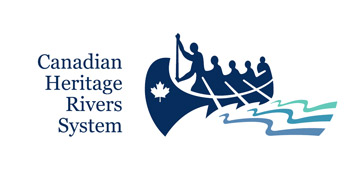Heritage River designation
The Grand River and its major tributaries - the Conestogo, Eramosa, Nith and Speed rivers - were designated Canadian Heritage Rivers in 1994.
The designation recognizes the outstanding cultural heritage values and excellent recreational opportunities along the rivers. The designation carries no regulatory or legal authority or restrictions.

The Canadian Heritage River System was established in 1984 by the federal, provincial and territorial governments. The goal is to conserve and protect the best examples of Canadian river heritage, to give them national recognition and to encourage the public to enjoy and appreciate them.
30th Anniversary of the Heritage River designation
The year 2024 marks the 30th anniversary of the designation of the Grand River as a Canadian Heritage River. To celebrate the anniversary, the GRCA will hold the River Heritage Festival from 10 a.m. to 2 p.m. on Sunday, September 22, 2024, at Brant Conservation Area.
The GRCA is also preparing a monitoring report for the Canadian Heritage Rivers Board. The report will summarize events, actions, studies, improvements, losses, and trends in environmental health, cultural heritage, and river-based recreation over the past ten years. The report will include the activities of private and public groups, clubs, businesses, museums, municipalities, and the GRCA.
- Do you have experiences or knowledge to share about natural or cultural heritage or river-based recreation in the Grand River? Please fill out our survey by November 15, 2024.
Cultural heritage
The Grand River valley has been home to Indigenous peoples for more than 10,000 years. The Six Nations of the Grand River and the Mississaugas of the Credit First Nation have a strong presence to this day. In the 18th and 19th centuries, the region attracted waves of immigrants to its fertile lands: Scots and Irish in the north, Mennonites and Germans in the central area and United Empire Loyalists in the south. Others followed from around the world.
The area's rich history is reflected in the watershed's historic sites and artifacts: dams, mills, canals, unique bridges, historic homes, archaeological sites and other features.
Recreation
The Canadian Heritage River designation recognizes the countless recreational activities that the Grand River watershed offers such as:
- Boating - canoeing, kayaking, rafting, motorized boating
- Angling - fly fishing, ice fishing, fishing vacations
- Water sports - swimming, water skiiing, stand-up paddleboarding
- Water associated activites - hiking, hunting, camping
- Winter activities - dog sledding, skiing
- Natural heritage appreciation - wildlife viewing, scenic views
- Human heritage appreciation - sporting events, visiting historic sites
The Grand Strategy
In order to be designated a Heritage River, a designation document must be prepared. The document describes a vision for how the river will be managed and its heritage values maintained. The Grand Strategy (6MB PDF) was developed through an extensive public consultation process and was presented to the Canadian Heritage Rivers Board in 1994.
All actions proposed in the strategy were based on existing laws and regulations as well as respect for the rights of Indigenous Peoples, communities, private landowners and other watershed residents.
Heritage River reports
Yearly and ten-year monitoring reports are prepared by GRCA and submitted to the Canadian Heritage Rivers Board. This is to ensure that the river continues to maintain the values for which is was designated. The reports detail the state of the river's human heritage and recreational values.
- A Decade in the Canadian Heritage Rivers System: A review of The Grand Strategy 1994-2004 (4MB PDF)
- The Grand River: Canadian Heritage Rivers System Ten-Year Monitoring Report 2004-2014 (5MB PDF)
Further reading
- The Grand as a Canadian Heritage River (12MB PDF) Heritage Resources Centre, University of Waterloo, Occasional Paper 9, January 1989
- Nominating the Grand as a Canadian Heritage River (20MB PDF), Heritage Resources Centre, University of Waterloo, Occasional Paper 13, April 1990
- Canadian Heritage Rivers System Nomination Document 1990 (5MB PDF)
Contact Us
Grand River Conservation Authority
400 Clyde Road, PO Box 729
Cambridge, ON
N1R 5W6
Phone: 519-621-2761
Toll Free: 1-866-900-4722
grca@grandriver.ca
